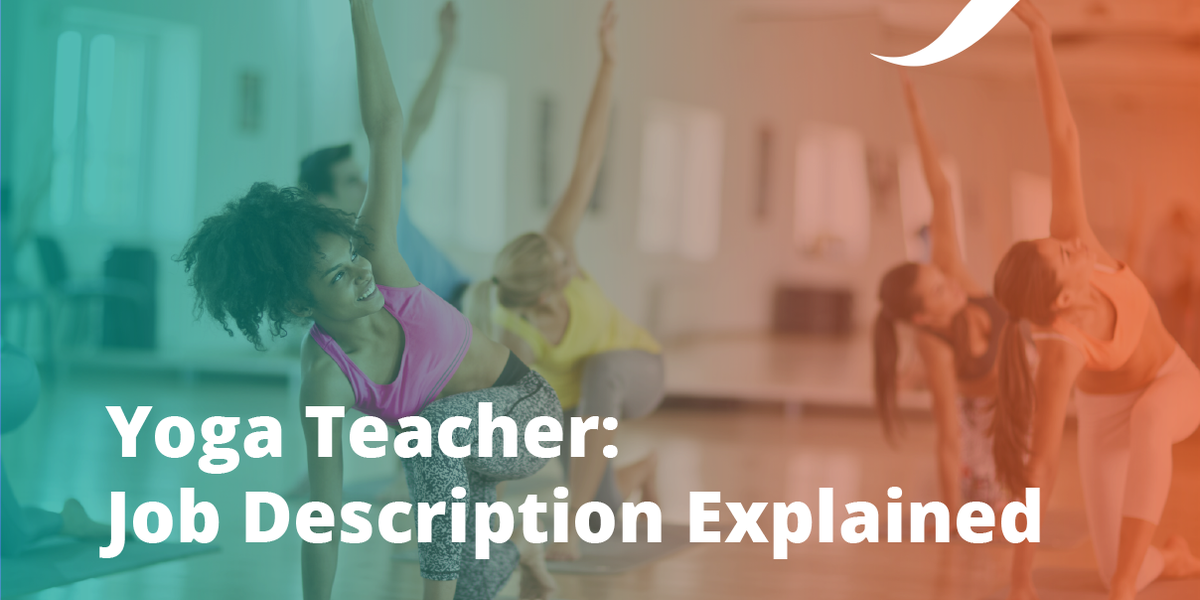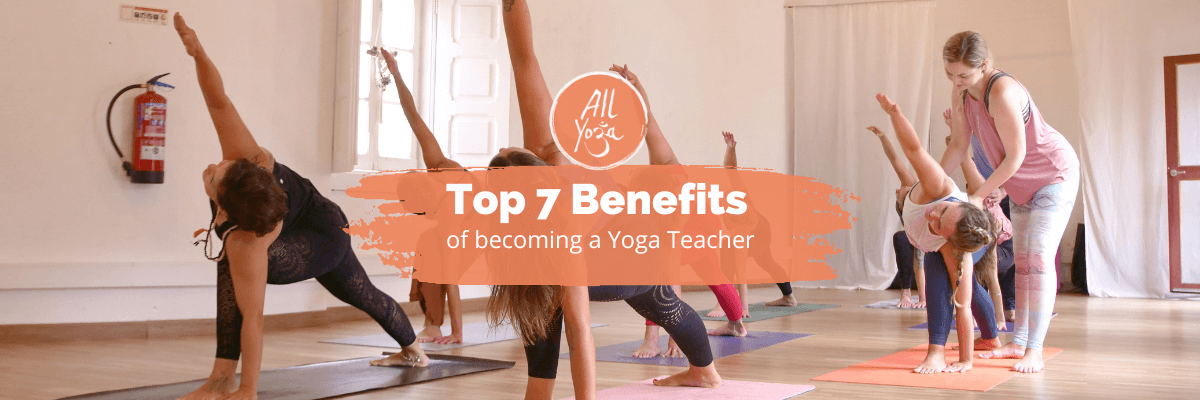
What Does Yoga Teacher Mean?
A Yoga Teacher is an individual who instructs and guides students in the practice of yoga. They are trained professionals with expertise in various aspects of yoga, including yoga postures (asanas), breathing techniques (pranayama), meditation, and philosophy. Yoga Teachers play a vital role in creating a safe and supportive environment for students to explore and deepen their yoga practice.
The responsibilities of a Yoga Teacher include:
- Leading Yoga Classes: Yoga Teachers lead group classes or one-on-one sessions, demonstrating and guiding students through different yoga poses and sequences.
- Providing Instruction: They offer clear and precise instructions on how to perform asanas correctly, ensuring students maintain proper alignment and avoid injuries.
- Assisting and Adjusting: During the class, Yoga Teachers may provide hands-on adjustments or verbal cues to help students improve their alignment and enhance their practice.
- Modifying for Individual Needs: They adapt the practice to meet the individual needs and abilities of each student, considering factors like age, physical limitations, and experience level.
- Creating Class Themes: Yoga Teachers often design class themes that focus on specific aspects of yoga philosophy, mindfulness, or physical goals.
- Encouraging Mindfulness: They promote mindfulness and awareness during the practice, encouraging students to connect with their breath and stay present on the mat.
- Providing a Safe Environment: Yoga Teachers ensure that the practice space is safe and conducive to the student’s well-being, addressing any potential risks or hazards.
- Sharing Yogic Philosophy: In addition to the physical practice, Yoga Teachers may introduce students to the philosophical principles and ethical guidelines of yoga.
- Continuing Education: Many Yoga Teachers engage in continuous learning, attending workshops, training programs, and immersions to enhance their teaching skills and expand their knowledge of yoga.
How to become Yoga Teacher?

Becoming a Yoga Teacher involves a combination of personal practice, formal education, and practical experience. Here are the general steps to becoming a Yoga Teacher:
- Develop a Personal Yoga Practice: Start by developing a regular and consistent yoga practice. Immerse yourself in different styles of yoga, explore various asanas (poses), pranayama (breathing techniques), and meditation to deepen your understanding of yoga.
- Choose a Yoga Style and Specialization: Explore different yoga styles and find the one that resonates with you the most. Decide if you want to specialize in a specific style or focus on particular aspects of yoga, such as Vinyasa, Hatha, Yin, Ashtanga, or Yoga Therapy.
- Join a Yoga Teacher Training (YTT) Program: Enroll in a Yoga Teacher Training program certified by a recognized yoga alliance or organization. YTT programs typically last for 200 hours (RYT 200) or 300 hours (RYT 300/500). Choose a program that aligns with your chosen yoga style and offers a comprehensive curriculum.
- Complete the YTT Program: Participate fully in the YTT program, where you will learn about yoga philosophy, anatomy, teaching methodology, ethics, and hands-on teaching experience. You will gain valuable insights into sequencing classes, cueing, and ensuring student safety.
- Obtain Certification: Upon successful completion of the YTT program, you will receive a certificate that qualifies you as a Registered Yoga Teacher (RYT). The certification level depends on the number of hours completed (RYT 200, RYT 300, or RYT 500).
- Gain Teaching Experience: Start gaining teaching experience by leading classes at local studios, gyms, community centers, or private sessions. Teaching will help you refine your skills, gain confidence, and connect with students.
Yoga Teacher: Eligibility
The eligibility criteria to become a Yoga Teacher may vary depending on the location, type of institution, and the specific Yoga Teacher Training (YTT) program you choose. However, here are the general eligibility requirements:
- Age: There is typically no specific age requirement to enroll in a YTT program. Many programs accept students of all age groups, from young adults to seniors.
- Educational Background: While there is no strict educational prerequisite for most YTT programs, having a high school diploma or equivalent is generally sufficient.
- Yoga Experience: Many YTT programs expect candidates to have a certain level of prior yoga experience. Some programs may require students to have practiced yoga for a few months or even a few years before applying.
- Physical Fitness: Yoga Teacher Training involves intensive physical practice, so candidates should be in reasonably good physical health and fitness.
- Dedication and Commitment: Yoga Teacher Training requires dedication and commitment as it is a rigorous and transformative experience. Candidates should be ready to invest time, energy, and effort into the training.
Benefits of Becoming a Yoga Teacher

Becoming a Yoga Teacher can be a deeply fulfilling and rewarding journey. Here are some of the key benefits of becoming a Yoga Teacher:
- Sharing the Gift of Yoga: As a Yoga Teacher, you have the opportunity to share the transformative power of yoga with others. Guiding students through their yoga practice and witnessing their growth and progress can be incredibly gratifying.
- Personal Growth: Teaching yoga requires continuous self-study and exploration. As a Yoga Teacher, you will deepen your own practice, enhance your understanding of yoga philosophy, and develop greater self-awareness.
- Positive Impact: Through your teachings, you can have a positive impact on people’s physical, mental, and emotional well-being. Yoga practice promotes relaxation, stress reduction, improved flexibility, strength, and overall health.
- Creating a Supportive Community: Yoga classes often foster a sense of community and connection among students. As a Yoga Teacher, you have the opportunity to create a safe and supportive space for individuals to come together and share their yoga journey.
- Flexibility in Work: As a Yoga Teacher, you can have flexibility in your work schedule. You can choose to teach at yoga studios, gyms, schools, corporate settings, or conduct private sessions, allowing you to balance your teaching with other commitments.
- Lifelong Learning: The journey of a Yoga Teacher is one of continuous learning and growth. You can explore different yoga styles, attend workshops, and pursue advanced training, deepening your expertise and expanding your teaching skills.
Jobs and Salary of Yoga Teacher
Here’s a table comparing some common job profiles and average salary ranges for Yoga Teachers in India.
| Job Profile | Description | Average Salary Range (per annum) |
| Yoga Instructor at Yoga Studios | Leading group yoga classes at yoga studios and fitness centers. | INR 2.5 lakh to INR 6 lakh |
| Private Yoga Instructor | Conducting personalized one-on-one yoga sessions for individuals. | INR 2.5 lakh to INR 8 lakh |
| Corporate Yoga Trainer | Providing yoga sessions to employees in corporate settings. | INR 3 lakh to INR 7 lakh |
| Yoga Teacher in Schools | Teaching yoga to students in schools and educational institutions. | INR 2 lakh to INR 5 lakh |
| Online Yoga Instructor | Conducting virtual yoga classes and workshops online. | INR 2 lakh to INR 6 lakh |
| Yoga Retreat Facilitator | Leading yoga retreats and workshops in various locations. | INR 3 lakh to INR 7 lakh |
| Yoga Content Creator | Creating and sharing yoga-related content online (e.g., videos, blogs). | INR 2.5 lakh to INR 6 lakh |
| Yoga Therapist | Specializing in therapeutic yoga for individuals with specific health needs. | INR 3 lakh to INR 8 lakh |
| Yoga Studio Manager | Overseeing the operations of a yoga studio, managing staff, and marketing. | INR 3.5 lakh to INR 8 lakh |
Yoga Teacher: FAQs
Q: What is a Yoga Teacher?
A: A Yoga Teacher is an individual who instructs and guides students in the practice of yoga. They lead yoga classes, demonstrating various poses, breathing techniques, and meditation to promote physical, mental, and emotional well-being.
Q: How do you become a Yoga Teacher?
A: To become a Yoga Teacher, you need to complete a Yoga Teacher Training (YTT) program from a recognized institution. These programs typically include the study of yoga philosophy, teaching methodology, anatomy, and practical teaching experience.
Q: What are the benefits of becoming a Yoga Teacher?
A: Becoming a Yoga Teacher allows you to share the transformative power of yoga with others, promote well-being, experience personal growth, build a supportive community, and enjoy flexibility in work schedules.
Q: What are the career options for Yoga Teachers?
A: Yoga Teachers can work in yoga studios, fitness centers, schools, corporate settings, retreats, or offer private sessions. They can also specialize in areas like therapeutic yoga, yoga for athletes, or become yoga teacher trainers.
Q: Is prior yoga experience necessary to become a Yoga Teacher?
A: While prior yoga experience is beneficial, it is not always a strict requirement. Some Yoga Teacher Training programs accept beginners with a sincere interest in yoga and a willingness to learn and grow in their practice.


